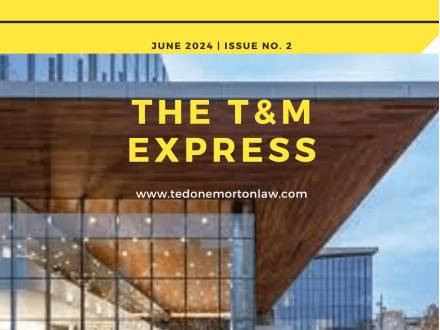Recent Blog Posts
What is Parental Alienation in the Context of Divorce?
 One of the most concerning issues that can arise during divorce proceedings involving children is parental alienation. This term refers to the psychological manipulation of a child by one parent to unfairly and unjustifiably reject and resist the other parent. It a situation soaked with emotional and legal complexities, and it can have long-lasting impacts on the parent child-relationship. If you believe your spouse is trying to turn your children against you unfairly, discuss these concerns with your Illinois divorce attorney.
One of the most concerning issues that can arise during divorce proceedings involving children is parental alienation. This term refers to the psychological manipulation of a child by one parent to unfairly and unjustifiably reject and resist the other parent. It a situation soaked with emotional and legal complexities, and it can have long-lasting impacts on the parent child-relationship. If you believe your spouse is trying to turn your children against you unfairly, discuss these concerns with your Illinois divorce attorney.
What Are Common Signs of Parental Alienation?
Parental alienation often happens through a variety of behaviors aimed at undermining the child’s relationship with the other parent. Key signs include:
Three Scenarios Where a Post-Divorce Modification is Necessary
 Divorce settlements, while designed to be comprehensive and fair, are not completely irreversible. The law in Illinois recognizes that life is dynamic, and circumstances can evolve in ways that require changes to the original divorce terms. Whether due to relocation, changing a child's medical needs, or the remarriage of a former spouse, the courts provide legal mechanisms for post-divorce modifications to ensure fairness and adaptability. Contact an Illinois divorce attorney if you believe your original divorce decree needs to be modified.
Divorce settlements, while designed to be comprehensive and fair, are not completely irreversible. The law in Illinois recognizes that life is dynamic, and circumstances can evolve in ways that require changes to the original divorce terms. Whether due to relocation, changing a child's medical needs, or the remarriage of a former spouse, the courts provide legal mechanisms for post-divorce modifications to ensure fairness and adaptability. Contact an Illinois divorce attorney if you believe your original divorce decree needs to be modified.
Situations That Warrant a Post-Divorce Decree Modification
Here are three examples where courts in Illinois allow for a divorce decree modification, including:
The Vital Role of an Attorney in Traffic/Major Traffic Cases

The Vital Role of an Attorney in Traffic/Major Traffic Cases: Why Legal Representation Matters
Written by Attorney Cosmo J. Tedone
In the realm of traffic violations, the consequences of a seemingly minor infraction can often snowball into significant legal issues, leading to hefty fines, license suspension, increased insurance premiums, and even the risk of incarceration. When facing such challenges, many individuals underestimate the importance of seeking professional legal assistance, assuming they can handle the matter on their own. However, navigating the complexities of traffic law and effectively presenting a defense requires a level of expertise and experience that only a skilled attorney can provide. Here's why having legal representation is crucial:
Understanding of the Law: Traffic laws can be intricate. An attorney possesses an in-depth understanding of regulations, including recent updates and precedents set in similar cases. They can interpret the law in the context of your situation and advise you on the best course of action.
Adoption Investigations and Guardian ad Litem Reviews in Illinois
 Navigating the adoption landscape in Illinois can be an exciting but difficult journey, often filled with hope and perhaps a little bit of anxiousness. In Illinois, one crucial component of the adoption process is the investigation and review by a Guardian ad Litem (GAL). While these procedures are essential to ensure the best interests of the child, they can sometimes be lengthy and demanding, testing the patience and resilience of prospective adoptive parents. For assistance through the entire adoption process, a skilled lawyer can help your adoption dreams come true.
Navigating the adoption landscape in Illinois can be an exciting but difficult journey, often filled with hope and perhaps a little bit of anxiousness. In Illinois, one crucial component of the adoption process is the investigation and review by a Guardian ad Litem (GAL). While these procedures are essential to ensure the best interests of the child, they can sometimes be lengthy and demanding, testing the patience and resilience of prospective adoptive parents. For assistance through the entire adoption process, a skilled lawyer can help your adoption dreams come true.
The Role of Investigation in Adoption Cases
Upon filing a petition for adoption, Illinois courts often mandate a thorough investigation by a designated agency. This investigation delves into the family’s background, home environment, financial status, and overall capability to provide for the child. It is not just a glance but an in-depth look at every aspect of your life. The objective of the investigation is to confirm that the environment is safe and supports the child’s overall welfare.
How Can Divorce Mediation Help You Stay Out of Court?
 Most people equate divorce with stress, emotional turmoil, and ugly court battles. However, Illinois offers an alternative that can save you time and cost and reduce the emotional strain typically associated with divorce. This process is called mediation. As a process facilitated by a neutral third party, mediation aims to help couples reach mutually agreeable solutions without spending extended periods of time in a courtroom. To learn more about how mediation can make the divorce process easier, contact an attorney to walk you through the process.
Most people equate divorce with stress, emotional turmoil, and ugly court battles. However, Illinois offers an alternative that can save you time and cost and reduce the emotional strain typically associated with divorce. This process is called mediation. As a process facilitated by a neutral third party, mediation aims to help couples reach mutually agreeable solutions without spending extended periods of time in a courtroom. To learn more about how mediation can make the divorce process easier, contact an attorney to walk you through the process.
Mediation Works to Reduce Conflict and Stress
One of the main reasons people decide to try mediation is its collaborative nature. Unlike court battles, which can make animosity worse between parties, mediation encourages cooperation and communication. During mediation sessions, both spouses, guided by a mediator, work together to discuss and resolve issues such as asset division, child custody, and support arrangements. Since mediation is less confrontational, stress can be reduced, which can lead to a more amicable divorce.
Contracts? Questions? Legal Issues in Real Estate
 Written by Attorney Andrew Boyer
Written by Attorney Andrew Boyer
Here is what’s in this issue: How an Attorney can help with your Real Estate Questions
Buying a home is one of the most significant financial transactions you will ever undertake. In Illinois, as in many other states, it is not a legal requirement to have an attorney represent you during the home-buying process. However, there are compelling reasons why having an attorney can be highly beneficial and provide peace of mind during this significant life event. In this article, we will explore why having an attorney is a smart move when purchasing real estate in Illinois.
Real estate transactions involve a complex web of legal contracts, documents, and regulations. An experienced real estate attorney understands the intricacies of Illinois real estate law and can ensure that all legal aspects of your transaction are in order. An experienced attorney can review and explain the terms of the purchasing agreement, ensuring your interests are protected; identify and address potential legal issues such as property liens, easements, or zoning restrictions; and navigate state and local regulations to ensure compliance with Illinois real estate laws.
Three Signs Spousal Support is Appropriate in an Illinois Divorce
 Divorce is often a challenging process because of the financial and emotional considerations involved. This is especially true in cases where spousal support (also known as maintenance or alimony) is concerned. If you are getting a divorce and have questions regarding whether spousal support for either you or your soon-to-be ex-spouse is appropriate, discuss these questions with a qualified attorney.
Divorce is often a challenging process because of the financial and emotional considerations involved. This is especially true in cases where spousal support (also known as maintenance or alimony) is concerned. If you are getting a divorce and have questions regarding whether spousal support for either you or your soon-to-be ex-spouse is appropriate, discuss these questions with a qualified attorney.
Here is When Spousal Support May Be Appropriate
Spousal support is not a guaranteed part of every Illinois divorce. However, here are scenarios where spousal support may be necessary:
-
The stay-at-home parent or homemaker – One of the most compelling reasons for spousal support occurs when one spouse has dedicated most of his or her marriage to being a stay-at-home parent or homemaker. This role often means sacrificing career development and earning potential to manage the household and children. As a result, the stay-at-home spouse may find it hard to become self-supporting after the divorce. Illinois courts recognize that playing this role can significantly impair one's ability to secure employment and achieve financial independence. Spousal support in such cases is meant to bridge the gap, providing financial assistance while the dependent spouse re-enters the workforce or gains new skills.
The Benefits of Aggressive Negotiation in Illinois Divorce Cases
 In the arena of divorce law in Illinois, the stakes are high, and the landscape can often feel similar to a complex chess match. Powerful, aggressive negotiation can be an effective strategy that can potentially influence the divorce in your favor. To learn more about the benefits of aggressive negotiation in a divorce case, contact an attorney who is skilled in the art of negotiation.
In the arena of divorce law in Illinois, the stakes are high, and the landscape can often feel similar to a complex chess match. Powerful, aggressive negotiation can be an effective strategy that can potentially influence the divorce in your favor. To learn more about the benefits of aggressive negotiation in a divorce case, contact an attorney who is skilled in the art of negotiation.
At Law Offices of Tedone and Morton, P.C., our team of capable attorneys understands how effective negotiation tactics can make a world of difference in a divorce case. While we are more than ready and capable of going to trial if necessary, our approach to divorce law stresses the importance and effectiveness of negotiation as a beneficial alternative to traditional courtroom litigation.
Aggressive Negotiation as Part of Your Divorce Strategy
Contrary to what many people may believe, aggressive negotiation is not about hostility. Instead, it is a strategic approach that forcefully advocates for your best interests, helping you to achieve your legal goals more effectively and efficiently. Aggressive negotiation can ensure your voice is heard and your concerns are listened to and respected. By resolving disputes somewhere other than a courtroom, you may also save time and money, not to mention your emotional well-being.
Can My Child Choose Who to Live With After the Divorce?
 One of the top issues facing parents who get divorced in Illinois is child custody. During the divorce process, Illinois law requires parents to submit a parenting plan detailing important information such as:
One of the top issues facing parents who get divorced in Illinois is child custody. During the divorce process, Illinois law requires parents to submit a parenting plan detailing important information such as:
-
The responsibilities of each parent
-
Who will have the majority of parenting time, which is when the child is in the parent’s physical care
-
Arrangements for transporting the child between the parents
-
How to divide decision-making, known as “parental responsibilities,” among the parents
Parents do not always agree on these issues, particularly when it comes to the question of who should have the majority of parenting time. Sometimes, a mediator or judge will take a child’s preference into account, which this article will discuss.
I Found Out My Child Took Drugs. Can I Sue for Full Custody?
 Illinois law prefers to divide parenting time between both parents equally. Parenting time refers to the period when you have physical custody of the child and are responsible for his or her care.
Illinois law prefers to divide parenting time between both parents equally. Parenting time refers to the period when you have physical custody of the child and are responsible for his or her care.
So, in the case of a divorce, a court will usually split parenting time between both parents by default. Sometimes the court might award one parent more parenting time based on certain factors, such as reports of abuse or neglect by the other side.
Once parenting time is decided, Illinois law prohibits any modification to the arrangement before two years have passed. There are exceptions to this, however, which this article will discuss. It is always best to consult with an experienced family lawyer if there are any questions about parenting time modification.









